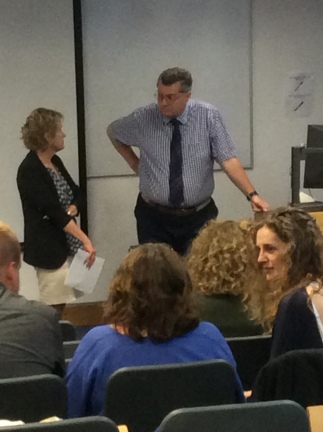Learning Journey
Doctoral supervisor as ‘confident companion’
The first day of the #DSHull (Doctoral Symposium, University of Hull 3rd – 5th June 2015) saw Professor Malcolm Tight offer a surprisingly informal key note lecture on Metaphors for the Doctoral Journey.
In this post, my colleague, Dr Max Hope offers her thoughts on how this ‘journey’ (if journey is the metaphor we use) and the doctoral researchers’ travelling companions may be thought about.
This post has been reblogged from Max’s own Blog: http://www.maxhope.co.uk/
I am not surprised to see this post from Max. I suspect she is toying her own question (asked during the symposium) – even if from a slightly different angle:
Why do metaphors for doctoral supervision have to give all power and control to supervisors? How about ‘supervisor as liberator’? #DSHull
— Max Hope (@Max_A_Hope) June 3, 2015
Following an interesting session with Prof Malcolm Tight (University of Lancaster), I have been pondering the use of metaphor to describe the research student experience (University of Hull, 3 June 2015). Prof Tight talked of whether the doctoral experience could usefully be seen as a ‘journey’. He also explored a number of metaphors such as ‘student as consumer, ‘student as apprentice’, ‘student as client’ and even ‘student as slave’ (a particularly uncomfortable one which I am not sure should be used, even as a metaphor).
It strikes me that all of these metaphors, in one way or another, present the research supervisor as ‘expert’ or ‘master’, with the research student taking the position of ‘beginner’ or ‘learner’. I appreciate that this may, of course, reflect the experiences of many doctoral students, and therefore, might be appropriate, but there is something about this dynamic which makes me feel uncomfortable.
If we stick with the idea of the doctoral experience as a journey, these metaphors conjure up images of the supervisor as driver, leader, route-marcher or guide. The supervisor chooses the destination, plans the route, and leads the student to make sure they stick to this route. If the student starts to wander from the path, the supervisor pulls them back. We could even go further and see the supervisor as cartographer – someone who draws the map itself. But is this the way that supervisors want to be seen?
I prefer to see my role as a doctoral supervisor as one of a ‘confident companion’. This expression is not my own, but is taken from Carl Rogers, in his work about person-centred therapy. Rogers holds a strong position that the counsellor or therapist is not the expert or sole knowledge-holder, but rather, needs to trust the client to be able to direct their own lives. In his work on empathy, he writes that counsellors need to be a ‘confident companion to the person in his or her inner world’ in which they ‘look with fresh and unfrightened eyes at elements in which he or she is fearful’ (Rogers, 1980, p142). For me, translating this to the role of doctoral supervisor is helpful. As a supervisor, I might be seen as a confident companion with a doctoral student as they navigate their way through the process of doing a doctorate. The end goal – the destination – is the production of an individual thesis, but the way in which each and every student gets there is unique, and the challenges they face on this journey is different. As supervisor, my role is not to tell them exactly where to go, or to route-march them through the journey, but to be alongside them, as a confident companion, with ‘fresh and unfrightened eyes’. The student might be seen as the navigator, the supervisor as companion. This means that each and every student can have their own personal journey and create their own route, and even their own destination.
Students might feel that this metaphor falls down at the point at which supervisors give them feedback on their written work. Students, I know, sometimes find this process difficult and challenging as they see supervisor comments as criticism. But I wonder whether this is because students are caught up in the perception that supervisors are experts (even masters), and therefore, give particular weight to their comments (ie. ‘my supervisor knows best and therefore, I must have done this wrong’). If students saw their supervisors as ‘confident companions’, they might be able to see this feedback in a different way (ie ‘they are alongside me, supporting me to work my way through my own journey, pointing out possible pitfalls on the way. I can decide for myself whether to pay attention to this. They might, after all, be wrong’).
I might just hold these ideas in mind when I supervise doctoral students. If I can manage to communicate that I am a confident companion on what is their own personal journey to a doctorate, then we might go some way to equalising the power dynamic that is inherent in all of the other metaphors.
Watch this space. Any comments – from doctoral students or from supervisors – are welcome.
Reference
Rogers, C. R. (1980) A Way of Being. New York: Houghton Mifflin Company.
